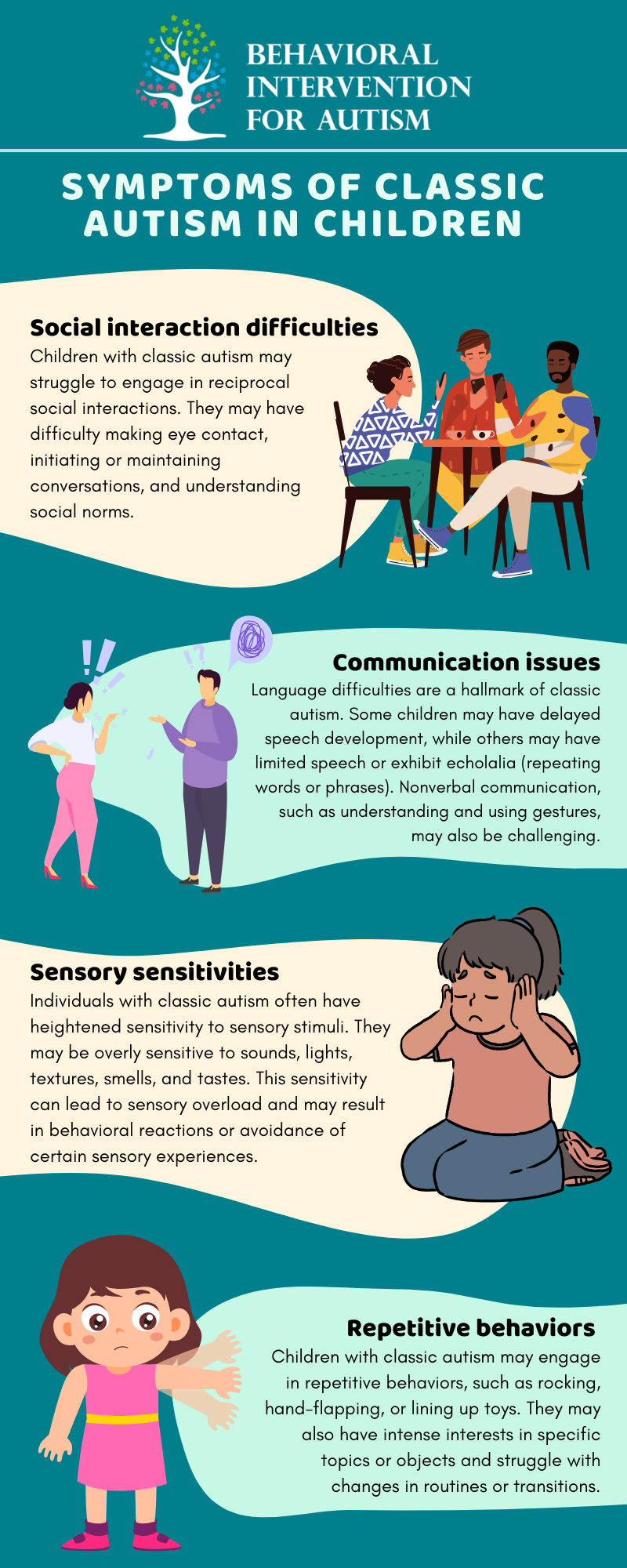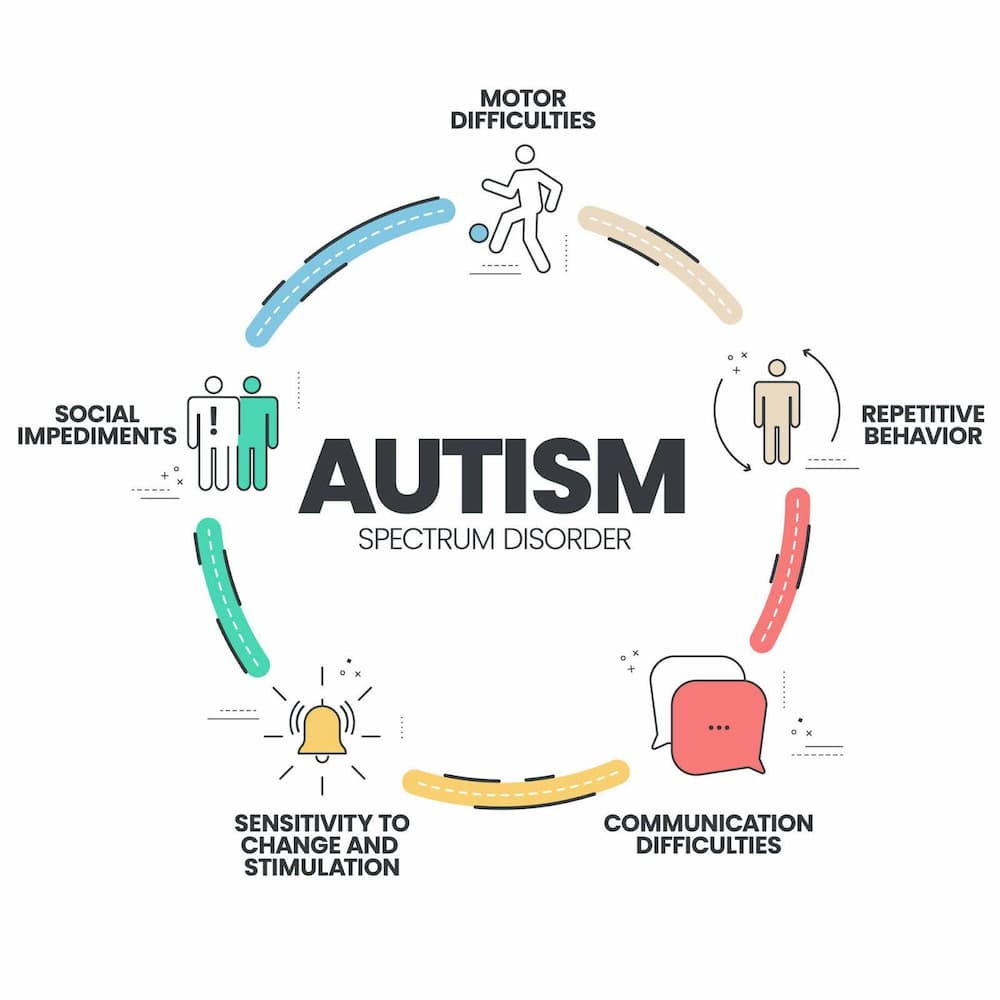The ultimate guide to choosing Autism Spectrum Therapies
Recognizing the Impact of Behavioral Autism on Day-to-day Live and Social Interactions
You might not realize exactly how deeply behavioral autism affects day-to-day life and social interactions. People on the range frequently browse a world loaded with communication difficulties and sensory overload. These challenges can lead to aggravation and isolation, affecting their relationships and total wellness.
Defining Behavioral Autism and Its Attributes
Behavior autism, frequently described as autism spectrum condition (ASD), encompasses an array of conditions characterized by challenges in social communication, communication, and repetitive behaviors. You may see that individuals with ASD often battle to translate social hints, which can result in misunderstandings in conversations. They might locate it hard to develop eye contact or participate in tiny talk, making social circumstances really feel frustrating.
Interaction troubles can show up in different methods, from postponed speech growth to a preference for making use of fewer words. Recurring habits, such as hand-flapping or rocking, can work as coping mechanisms to handle anxiety or sensory overload. These features can exceptionally influence everyday life, making it essential for you to comprehend and sustain those with ASD. By identifying these traits, you can promote an atmosphere that promotes acceptance and urges efficient communication, aiding people with autism thrive in their day-to-day interactions.
The Spectrum of Autism: Understanding Irregularity in Behavior
Autism spectrum problem (ASD) isn't a one-size-fits-all medical diagnosis; it differs widely amongst individuals. You might see that some people with ASD display light signs, while others might deal with much more considerable challenges. This irregularity can show up in actions, interests, and sensory sensitivities. You might come across individuals that are very spoken and involve quickly in conversations, while others could prefer singular activities or communicate non-verbally.
Furthermore, the means people with ASD reply to sensory input can differ considerably; some may be overwhelmed by intense lights or loud noises, whereas others prosper in promoting environments. The range also includes differences in social interactions; some people may have a hard time to interpret social hints, while others navigate social settings with family member convenience. Comprehending this irregularity is important, as it aids you value everyone's distinct experience and dressmaker assistance to their particular requirements, cultivating a more comprehensive environment for every person.
Interaction Obstacles Encountered by People With Autism
When you connect with people on the autism range, you might discover their unique interaction obstacles. They typically encounter problems with both nonverbal and spoken hints, which can affect their social interactions. Comprehending these barriers is necessary for fostering better connections and support.

Verbal Communication Troubles
Lots of individuals on the autism range experience spoken communication difficulties that can considerably affect their day-to-day communications. You might discover it challenging to reveal your thoughts, feelings, or requires plainly. This can result in irritation for both you and those around you, as misconceptions happen. You might battle with initiating conversations, keeping a subject, or recognizing subtleties in speech. Typically, you could choose using basic language or repetitive phrases, which can restrict your capacity to involve in deeper conversations. Your rate, tone, or volume might not straighten with social assumptions, causing others to misunderstand your objectives. Identifying these obstacles can help you and your assistance network develop techniques to improve interaction and foster better links with others in your day-to-day live.
Nonverbal Communication Obstacles
Spoken interaction isn't the only difficulty people on the autism range face; nonverbal communication barriers can be equally as significant. You could discover it challenging to interpret body movement, face expressions, and eye contact, which are important for efficient communication. These difficulties can bring about misconceptions or false impressions of social cues, making communications feel frustrating or complicated. You might have a hard time to share your own emotions via nonverbal methods, leaving others unclear of your purposes or feelings. This disconnect can produce sensations of seclusion and irritation. Recognizing these barriers is vital for fostering understanding and empathy in your communications. By attending to nonverbal interaction, you can locate methods to boost your social experiences and improve your overall lifestyle.
Social Communication Impacts
Social communications can frequently really feel frustrating due to the one-of-a-kind communication challenges encountered by people with autism. Acknowledging these challenges can aid you find approaches to boost interaction, such as exercising social abilities in safe settings or using visual help. Comprehending your needs enables you to browse social interactions with higher self-confidence and simplicity.
Social Interaction and Connection Structure in Autism
While structure relationships can be challenging for people with autism, recognizing their unique point of views and communication styles can foster purposeful links. You might observe that many people on the spectrum favor direct interaction and might have problem with social hints or little talk. By being simple in your communications, you can assist produce an atmosphere where they feel comfortable.
Take the time to observe and listen exactly how they express themselves. This understanding can her explanation guide you in guiding discussions more successfully. Taking part in shared passions can additionally function as a bridge to deeper links. Whether it's a hobby, a favored program, or a shared passion, these typical strings can open up doors to relationship.
Life Routine: Navigating Obstacles and Strategies
Navigating day-to-day live routines can be specifically testing for people with autism, particularly when unforeseen modifications happen. You could find comfort in having a structured routine, as it aids you expect what's next. When disruptions occur, it's regular to feel anxious or overwhelmed. To navigate these difficulties, consider applying aesthetic schedules or checklists. These tools can offer quality and confidence.
Developing a routine that consists of sensory breaks can also be advantageous. This helps create an understanding setting.
Last but not least, practice Homepage mindfulness strategies to handle stress and anxiety and anxiousness. Simple breathing exercises or basing methods can make a significant difference. By including these strategies, you can boost your everyday routine and decrease interruptions, making life feel a lot more convenient.
Strengths and Abilities of Individuals on the Autism Range
Comprehending everyday life regimens is simply one element of the autism experience. Many people on the autism spectrum have remarkable staminas and abilities that set them apart.
Furthermore, your memory abilities usually radiate, particularly in areas of rate of interest. Aba Therapist. This flair for maintaining information can make you a beneficial resource in areas like art, modern technology, or science. You might also exhibit strong visual thinking, enabling you to imagine complicated ideas and solve issues creatively
Additionally, your unique viewpoint on the world can foster empathy and understanding in others, enriching social interactions. Embracing these staminas not just enhances your self-confidence however also aids others appreciate the varied abilities you give the table.
Producing Inclusive Settings for People With Autism
Creating comprehensive atmospheres for people with autism begins with making sensory-friendly areas that accommodate their one-of-a-kind demands. You can also foster chances for social communication, assisting to develop friendships and links. By making these changes, you'll add to an extra inviting environment for every person.
Designing Sensory-Friendly Spaces
While making sensory-friendly rooms, it's vital to show on the one-of-a-kind demands of individuals with autism. Include silent areas where individuals can charge and retreat when overwhelmed. Consist of visual timetables or clear signage to assist individuals browse the room confidently.
Advertising Social Interaction Opportunities
Creating sensory-friendly areas not only addresses private convenience but additionally establishes the phase for meaningful social communications among individuals with autism. To advertise these communications, produce comprehensive settings that welcome participation. Organize structured activities, like art courses or group games, that urge collaboration without overwhelming sensory input. Use aesthetic help and clear communication to help everyone involve easily. Encourage peer mentoring, coupling individuals with autism with supportive peers who can guide them through social situations. In addition, think about hosting normal area occasions that celebrate neurodiversity, fostering acceptance and understanding among all individuals. By carrying out these methods, you can improve social possibilities, assisting individuals with autism develop friendships and enhance their social skills in a safe, welcoming setting.

Frequently Asked Concerns
How Can Pals Support Someone With Behavioral Autism?
You can support a close friend with behavioral autism by being client, paying attention actively, and appreciating their limits. Engage in activities they take pleasure in, communicate honestly, and develop a comfortable environment where they really feel valued and recognized.
What Resources Are Available for Moms And Dads of Children With Autism?
You can explore directory numerous sources for moms and dads of youngsters with autism, consisting of support groups, instructional websites, and local social work. Getting in touch with other moms and dads can also offer valuable understandings and shared experiences to assist browse challenges.
Can Behavioral Autism Adjustment Gradually?

Yes, behavioral autism can transform gradually. You might notice changes in interaction, social skills, and habits as your kid expands. Early treatment and assistance typically play crucial functions in these developmental modifications.
Just How Do Sensory Sensitivities Affect Every Day Life?
Sensory sensitivities can make daily experiences overwhelming. You may have problem with bright lights or loud noises, causing stress or avoidance. Discovering environments that suit your demands can greatly boost your comfort and overall life.
What Are Usual Misconceptions About Behavioral Autism?
You may assume behavior autism only impacts interaction abilities, but it's even more complex. Many presume people lack empathy or knowledge, which isn't true. Comprehending these misunderstandings aids foster approval and assistance for those on the range.
Behavioral autism, often referred to as autism spectrum disorder (ASD), incorporates an array of problems characterized by challenges in social interaction, communication, and repeated behaviors.Social communications can commonly feel overwhelming due to the unique communication difficulties dealt with by individuals with autism.Designing sensory-friendly areas not just addresses private convenience however likewise establishes the stage for meaningful social communications among people with autism. Motivate peer mentoring, combining people with autism with encouraging peers who can lead them via social scenarios. By applying these approaches, you can enhance social opportunities, aiding people with autism build relationships and reinforce their social skills in a secure, inviting setting.